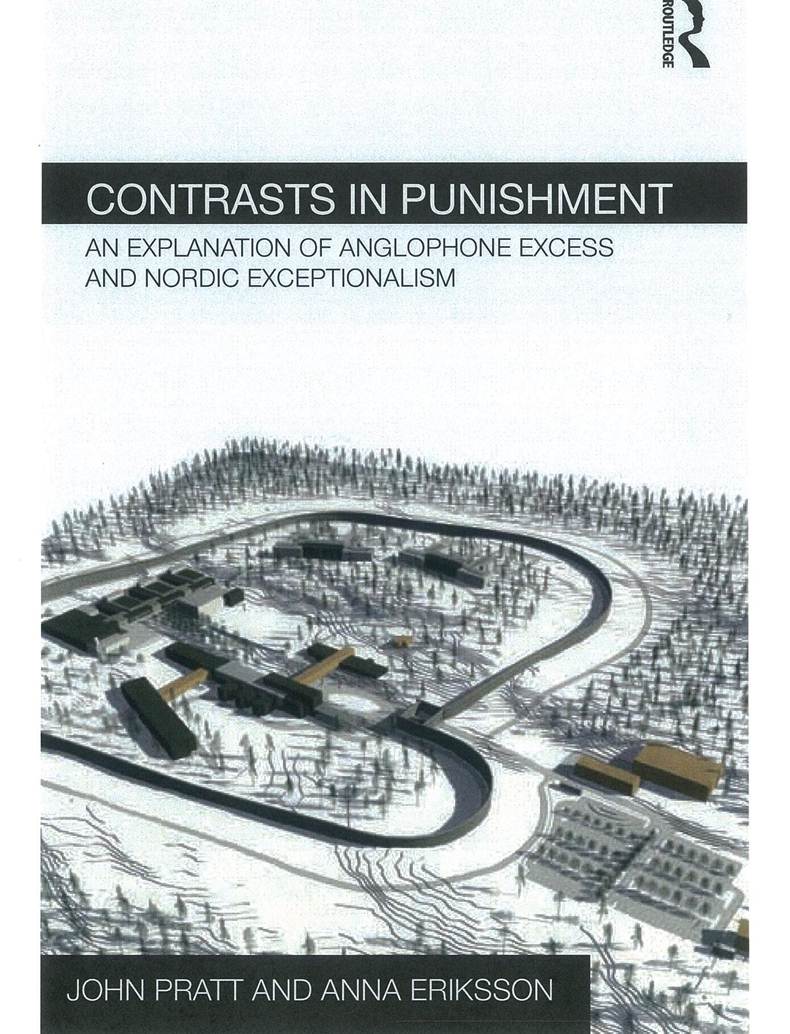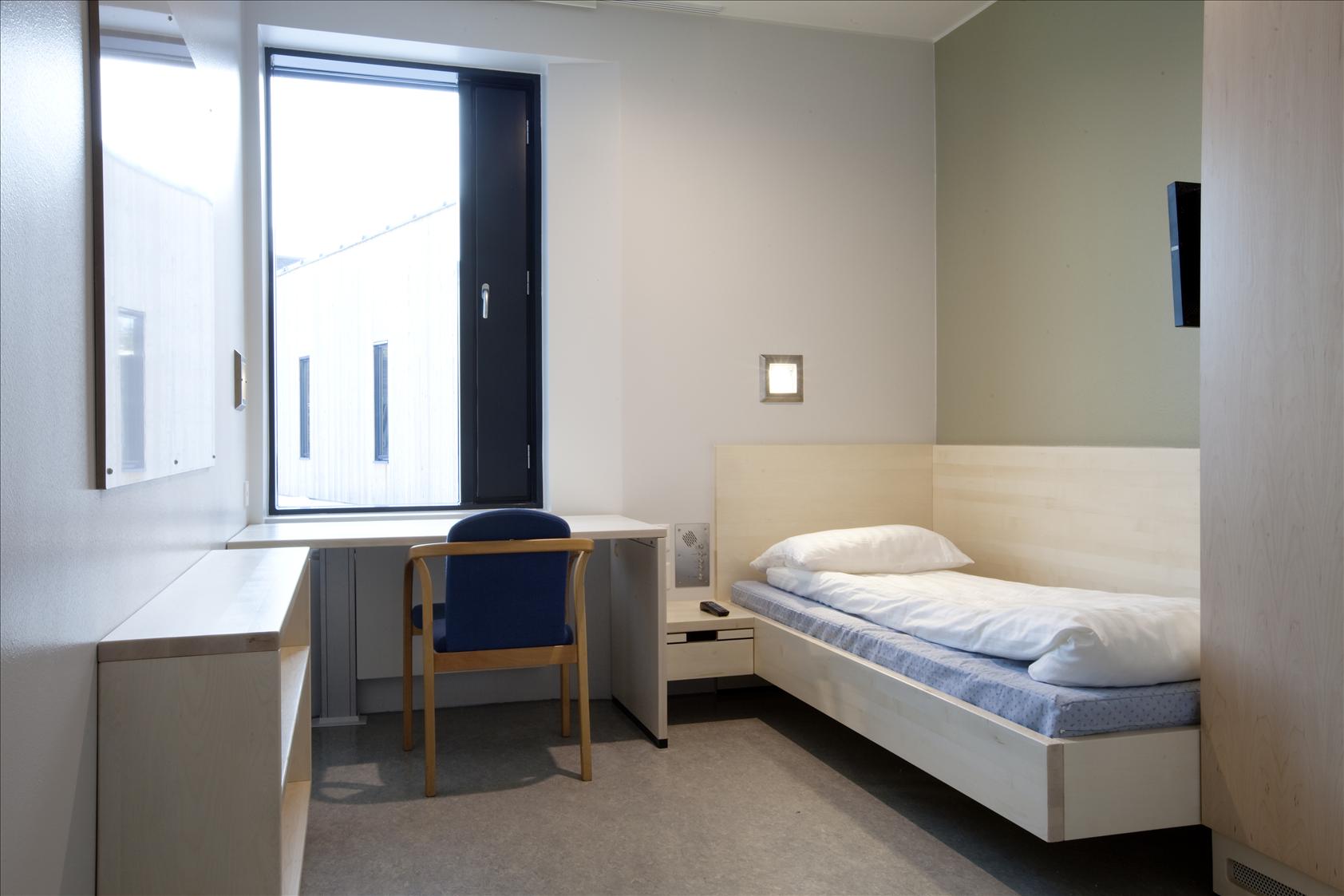Contrary to the public belief that New Zealand prisons are among “the cosiest in the world” giving the freedom to even serious offenders to “enjoy life,” they are not all that flash, says a Wellington based researcher.
Professor John Pratt of Victoria University’s Institute of Criminology said that prisons in Nordic countries including Finland, Sweden and Norway were far better compared to those in other developed countries.
In his new book (with Ann Eriksson as the co-author), “Contrasts in Punishment: An Explanation of Anglophone Excess and Nordic Exceptionalism,” released recently, he said that there were vast differences between prisons and the way in which offenders received punishment in the Nordic and Anglophone countries.
“In the Nordic countries, there is a belief that prison conditions should resemble those in the outside world as much as possible. Norway’s recently opened Halden Prison is a high security jail, where every cell has a television, a refrigerator, unbarred windows and designer furniture. The male and female guards are typically unarmed and prisoners complete questionnaires that ask how their prison experience can be improved,” he said.


Serious contrasts
His research, which took ten years for completion, accounts for ‘contrasting attitudes to punishment’ between Nordic societies and Anglophone societies.
He was awarded a Royal Society of New Zealand James Cook Research Fellowship (2009-2012) and a Fellowship at the Straus Institute for Advanced Studies of Law and Justice, New York University (2010-2011) to conduct the research.
His lectures on the research project impressed audiences in Continental Europe, England, South America, US and Australia.
The Editorial Board of the Brtiish Journal of Criminology awarded him the ‘Sir Leon Radzinowicz Memorial Prize’ in 2009 for his earlier publications on the project.
‘Contrasts in Punishment’, listed in the ‘Routledge Frontiers of Criminal Justice Book Series,’ analyses the factors that determine the treatment of offenders in countries such as Australia, England and New Zealand and the three Nordic countries.
“Differences between the two clusters of societies are illustrated in their prison rates; Anglophone countries have some of the highest in the OECD and the Nordic countries some of the lowest. The differences are also seen in prison conditions,” Professor Pratt said.
Humane Prisons
Time magazine, which interviewed him in 2010, described the Halden Prison (which won the Contemporary Design Awards in Norway) as “the most humane in the world.”
According to Professor Pratt, it would be impossible to think of such a prison in the Anglophone countries.
“Here, prison administration has come to be dominated by issues of security and control, in conjunction with overcrowded, deteriorating conditions. Nordic countries, which are already very homogeneous, became socially inclusive and put a high value on moderation, restraint and egalitarianism. In contrast, Anglophone societies became much more exclusionary. They emphasised individual responsibility and the accumulation of wealth and property which led to extensive class and ethnic divisions and barriers,” he said.
Professor Pratt argues that the pattern of social arrangements developed over the last 200 years was among the reasons for varied perceptions of punishment.
Welfare States
The differences were further strengthened after 1945 by the development of different models of welfare state, he added.
“In the Nordic countries, welfare was universal with generous benefits paid for by high taxes. Welfare was much more limited in Anglophone countries, where services were mean tested and benefits were at a lower level. As a result, Nordic countries have much higher levels of social capital leading to high levels of trust, self-regulation and strong interdependencies,” Professor Pratt said.
“That offsets the need to rely on the penal system to provide social order as is the case in the Anglophone societies.”
According to him, Nordic countries have a tendency to use state power protectively and preventatively in the form of welfare, social and educational provisions.
“In the Anglophone countries, despite all the political emphasis on ‘getting the state out of people’s lives’, there have been few qualms about using state power negatively and punitively against those thought to be unwanted or troublesome.
“In these ways, the exclusionary characteristics of the Anglophone societies have been perpetuated and are reflected in the penal contrasts between the two clusters of societies today,” he said.
*
Photo :
Professor John Pratt 2. Ann Eriksson 3. Book Cover 4. A Prisoner’s room at Halden Prison, Norway
Contrasts in Punishment: An explanation of Anglophone excess and Nordic Exceptionalism by Professor John Pratt and Anna Eriksson; 272 Pages; Oxford- Routledge ISBN13: 978-0-415-52473-5
Recommended Retail Price: NZ$ 140 (about £75) available at all good academic bookshops and at www.amazon.com; Special deals on offer through representatives of Routledge representatives in New Zealand at official launch on March 21.






